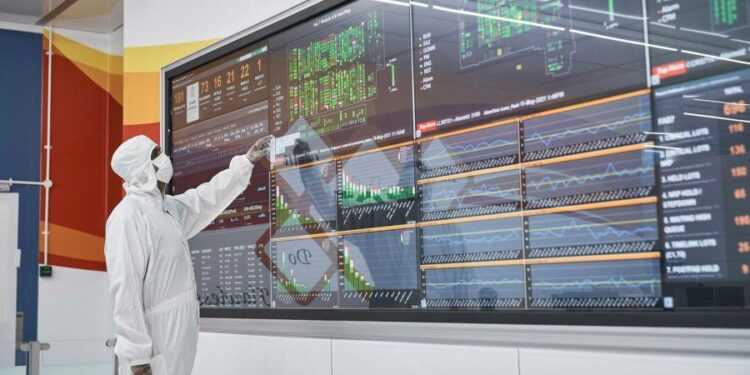Longer waits and higher prices have been a normal part of buying a new car this year as a result of a global shortage of semiconductors and supply disruptions.
There are early signs that this shortage is now easing as inventories at leading suppliers rise. But a fundamental change in the industry that produces the semiconductors that go into today’s cars means that it is too early to say that the worst is over.
The more lasting problem lies in the evolution of most global automotive chip companies into “fabless” firms — they design chips and then outsource manufacturing (or fabrication). As these companies do not have their own production facilities, they are reliant on chipmakers such as Taiwan Semiconductor Manufacturing Company and Samsung.
These two companies, which account for around 80 per cent of the world’s contract chip making and nearly all of the advanced chip manufacturing market share, have long run at full capacity. Automaker chip inventories are at historic lows, meaning demand should remain high.
Meanwhile, modern cars use more chips than ever. Electronic systems control everything from opening the boot to cutting edge infotainment systems.
Additional autonomous driving features are pushing up the number of chips in a car. The average electric car uses about 2,000 chips, double the average petrol one. The Tesla Model 3, for example, has more than triple the number of electronic components compared to its traditional counterpart. Tesla’s Full Self-Driving Chip, its central control unit made by Samsung and found in its all new models, is a key part of its technological edge over rival electric carmakers.
Until now, most of the automotive sector’s chips have used older technology. That means automakers were not fighting other sectors like smartphones and telecom for the same chips.
But as cars become increasingly high tech, carmakers are starting to use the advanced chips used in smartphones, internet servers and 5G equipment. As smarter, more autonomous cars become a more common sight on roads, many times more advanced chips will be needed.
Despite demand, chipmakers such as Samsung and TSMC are reluctant to expand production capacity. Costs are high. Samsung’s new Texas plant, for example, will cost $17bn. It will take years to build and recoup investment. Chip prices are negotiated once a year, making it difficult to increase pricing amid fast changing market conditions. The fat, 40 per cent margins at TSMC and Samsung’s chip units are contingent on running at full capacity using existing plants.
Automotive chips are also not the chipmaker’s favourite. They are difficult to design and manufacture, needing to pass tough stress tests to ensure safety as any defects can mean car accidents. It takes around five years to design and produce them from scratch, compared with less than a year for chips used for consumer electronics. The complexity is compounded by the fact that cars now need a mix of both older and high-end chips. There is also little leeway in chip pricing due to automakers’ slim operating profit margins.
As a large chunk of Samsung’s production capacity goes into its own products, TSMC is the only viable choice for most companies seeking advanced chips. But TSMC is already overwhelmed with a 53 per cent share of the contract chip manufacturing market share. There are concerns too of possible disruption and political risk after Chinese warplanes made a record number of incursions near Taiwan this year.
Shares of Samsung are down 16 per cent from a January high despite record revenues. This partly reflects expectations that periods of oversupply may push down prices and profits after record years such as this one. During chip supply gluts in 2001 and 2008, Samsung group operating margins fell to single digits.
But future downturns are likely to become less predictable. The world has felt the uncomfortable consequences of chip disruption and has no intention of a rerun. Car companies are stockpiling. Omicron-driven border closures are adding to an already tight supply situation.
Carmakers with local supply chains will gain an edge. Tesla’s recent move to Austin, for example, puts it just a half-hour drive from Samsung’s new chip plant in Taylor. That should result in a reduction in supply chain issues, quicker updates and more engineering collaboration.
Automakers that rely on just-in-time manufacturing and global suppliers for low component costs need an overhaul. Management decisions made in the coming year are going to determine market share in five years’ time.
june.yoon@ft.com











